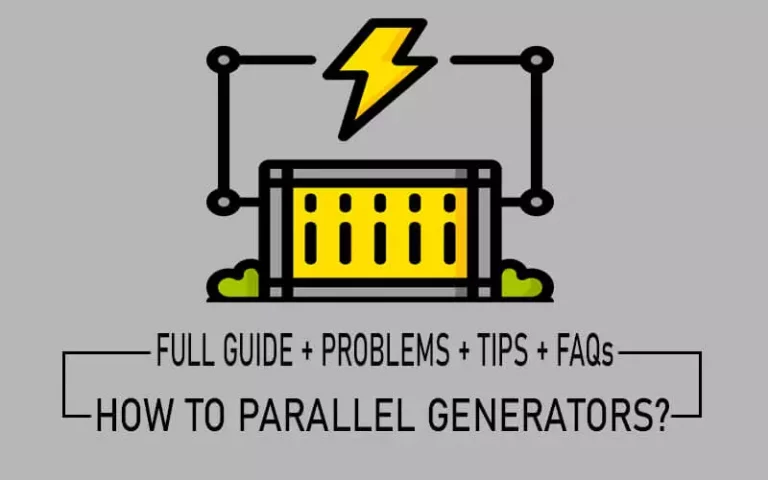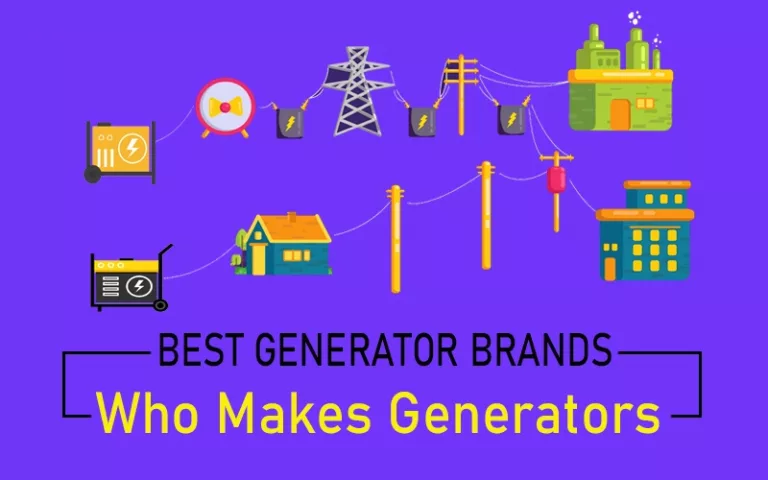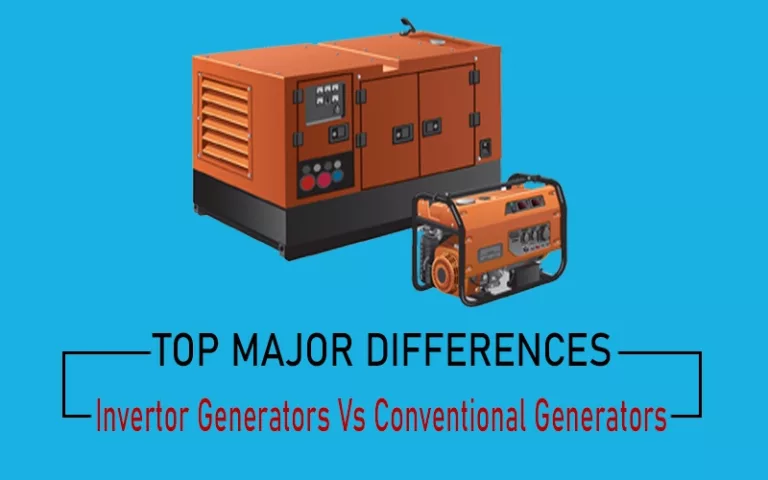Why Is My Generator Not Producing Power? (+Solutions)
Why is my generator not producing power? Electrical energy is generated by generators by converting mechanical energy.
The work of a generator is to produce an electric current. A power plant generates electricity using generators.
Home and business owners receive electricity after it has been generated.
In emergencies, generators can also provide power. A generator that does not produce power may be suffering from several issues.
To know why your generator is not producing power, you need to read the following article.
Why Is My Generator Not Producing Power?
Why Is My Generator Not Producing Power? Imagine a situation where you have never been able to produce power from your generator.
Alternators with those problems may have a failing AVR (automatic voltage regulator) or are losing residual magnetism.
A generator that does not produce power is commonly caused by a loss of residual magnetism.
When an alternator loses its residual magnetism, it can no longer generate electricity.
The best way to restore residual magnetism is to have the alternator professionally rewound.
Generators can fail to produce power if their AVRs or other excitation components fail.
AVRs and other excitation components are responsible for regulating the voltage output of a generator.
If one of these components fails, it can cause the generator to output too much or too little voltage, damaging sensitive electronic equipment.
When generators fail to produce power, what is the common cause?
There are several potential causes for a generator not producing power, but the most common cause is the loss of residual magnetism.
When a generator loses its residual magnetism, it can no longer create the magnetic field required to generate power.
This can be caused by several factors, including a loss of power to the generator itself, damage to the generator’s components, or simply a build-up of dirt and debris on the generator’s coils.
If a generator loses its residual magnetism, it must be repaired or replaced to continue generating power.
How is Residual Magnetism lost?
To lose residual magnetism, several factors must be considered. It is usually because they aren’t used.
The residual magnetism will slowly dissipate if a generator isn’t used regularly.
Keeping things connected to the generator after it is turned off can also cause residual magnetism loss.
This can cause demagnetization, where the magnetic field is weakened.
In addition, leaving the generator running for too long without connecting it to anything is another leading cause of residual magnetism loss.
This can also cause demagnetization, as well as damage to the generator.
How can Residual Magnetism loss be prevented?
There are a few ways to prevent residual magnetism loss in your generator.
Before turning off the generator, always run it with a load attached.
This helps to ensure that the magnetic field is constantly being used and that it doesn’t have a chance to dissipate.
Another way to prevent this loss is to regularly check the generator for any wear or damage and ensure the connections are secure.
Preventing further damage requires you to fix any problems as soon as possible.
FAQs: Why Is My Generator Not Producing Power?
What are the common causes of generator failure?
There are several common causes of generator failure, the most common of which is battery failure.
In the event of a generator’s battery failure, it will not be able to provide the required power.
An elderly machine, a machine that has corroded, or a machine that has not been maintained can all result in this.
Another common cause of generator failure is fuel contamination. A contaminated fuel supply can result from contaminants such as water.
This can cause an engine to run erratically or fail to start.
Finally, generator failure can also be caused by a faulty or damaged engine.
Several factors can lead to this issue, including improper maintenance, excessive wear and tear, and aging.
How are generator faults commonly caused?
Several common types of generator faults can occur.
- Faults in the rotor
- Faults of Earth
- Short-circuits in the windings
- Overheating.
1- Faults in the Rotor:
Generator faults are most commonly caused by rotor faults.
Several factors can cause them, including excessive vibration, misalignment, and bearing failure.
When a rotor fault occurs, it can damage the generator’s stator (the part of the generator that contains the coils of wire that generate the electricity).
2- Faults of Earth:
An earth fault is a generator fault that occurs when the generator’s frame comes into contact with the ground.
This can happen if the generator is not properly grounded or if the ground itself is not conductive.
Earth faults can damage the generator’s stator and cause a loss of power.
3- Short-circuits in the Winding:
A short winding circuit is the most common type of generator fault.
When the windings are damaged, a short circuit occurs between the turns of the rotor.
This can damage the insulation of the winding and cause a loss of power.
4- Overheating
Overheating is another common generator fault. It occurs when the generator is overloaded, and the windings begin to overheat.
This can damage the insulation of the winding and cause a loss of power. Loss of synchronism is the third type of generator fault.
It occurs when the generator loses its connection to the power source.
Which fault is used in the generator major?
A few different types of faults can occur in a generator, but the most major is the single phase to ground fault.
This occurs when one of the phases in the generator becomes grounded or in contact with the earth.
This can happen for various reasons, but usually, it is due to a problem with the insulation in the generator.
Generators can become overloaded and eventually fail as a result of this situation.
Final Verdict:
Having a generator at home or at work is an excellent way to generate power.
Before purchasing a generator, it is important to do your research because many types are available on the market.
Make sure to consider your power needs and budget when you are shopping for a generator.
It is possible to find the right generator for your needs if you plan ahead. After buying a generator, don’t forget to break in a generator to get the best performance properly.







